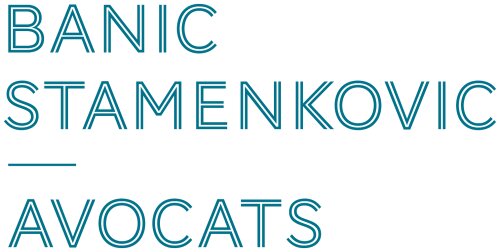Best Child Custody Lawyers in Yverdon-les-Bains
Share your needs with us, get contacted by law firms.
Free. Takes 2 min.
Free Guide to Hiring a Family Lawyer
List of the best lawyers in Yverdon-les-Bains, Switzerland
About Child Custody Law in Yverdon-les-Bains, Switzerland
Child custody in Yverdon-les-Bains, as in the rest of Switzerland, is governed by the Swiss Civil Code. The primary focus of the law is the best interest of the child, which takes precedence over the interests of the parents. Whether parents are unmarried, married, or separated, custody matters are handled with careful consideration by the local authorities and courts in the canton of Vaud, where Yverdon-les-Bains is located. Parents are generally encouraged to reach amicable agreements, but when this is not possible, the local Child Protection Authority (Autorité de Protection de l'Adulte et de l'Enfant, or APAE) and courts intervene to ensure the welfare of the child.
Why You May Need a Lawyer
There are many situations in which legal assistance is indispensable in child custody matters. You may need a lawyer if there is a dispute about where the child will live or who will make important decisions about their upbringing. Legal help is also crucial when parents are separating or divorcing, if there are concerns about child safety or wellbeing, or if an existing arrangement needs to be changed due to significant life changes. Furthermore, in cases involving international custody issues or disagreements between parents from different countries, navigating Swiss law can be complex. A lawyer can help protect your parental rights while prioritizing your child's best interests.
Local Laws Overview
In Yverdon-les-Bains, child custody matters fall under the jurisdiction of cantonal law, applied in accordance with the Swiss Civil Code. Key aspects include:
- Parenting Authority: Both parents typically share parental authority (autorité parentale conjointe) unless the child's wellbeing requires otherwise.
- Child's Best Interest: Decisions are made with the central aim of serving the best interests of the child, considering their wellbeing, stability, and wishes if age-appropriate.
- Types of Custody: Custody can be joint or sole. Sole custody is only granted if joint custody is deemed not to be in the child’s best interest.
- Right of Access: The non-custodial parent usually has visitation rights, barring safety concerns.
- Modification: Custody arrangements can be changed if circumstances significantly change or if it's in the child’s best interest.
- Role of the APAE: The local Child Protection Authority can assist and intervene in disagreements and ensure the child’s wellbeing is protected.
Frequently Asked Questions
How is child custody decided in Yverdon-les-Bains?
Custody is decided based on the best interests of the child. If parents cannot agree, the matter goes to the APAE or family court, where facts are carefully reviewed before a decision is made.
Can custody decisions be changed later?
Yes. If there is a significant change in circumstances, you can request a review and modification with the proper authorities or court.
What factors does the court consider for custody?
Key factors include the child's age and wishes, each parent’s ability to care for the child, stability of housing, previous parental involvement, and any issues affecting the child’s wellbeing.
Does Swiss law favor mothers or fathers?
Swiss custody law does not inherently favor mothers or fathers. The primary concern is the child's best interest, and joint parental authority is the standard unless contrary to the child’s wellbeing.
Can a parent move away with the child?
Relocation that significantly affects the child’s life, especially abroad or to a distant Swiss canton, usually requires the other parent’s consent or approval by the court.
What if there are safety concerns for the child?
If you believe your child is in immediate danger, you should contact the police and APAE. The authorities can take urgent action to protect the child.
How does visitation work in Yverdon-les-Bains?
The non-custodial parent is typically granted regular visitation unless there's a proven risk to the child’s wellbeing. The schedule can be flexible or structured, depending on the situation.
What support is available for international custody disputes?
Switzerland follows the Hague Convention on International Child Abduction. Local authorities and courts can cooperate internationally to resolve cross-border custody issues.
Do children have a say in custody decisions?
Yes, children of sufficient age and maturity can express their views, which are considered by the authorities during the decision-making process.
Do I need a lawyer for child custody cases?
While not mandatory, having a lawyer helps ensure your rights and your child's best interests are protected, especially during complex or contested cases.
Additional Resources
If you are seeking more information or assistance regarding child custody in Yverdon-les-Bains, consider the following resources:
- The Child Protection Authority of Vaud (APAE - Autorité de Protection de l'Adulte et de l'Enfant)
- The Justice of Peace of the District of Jura-Nord Vaudois
- The Swiss Bar Association (Fédération Suisse des Avocats)
- Local legal aid offices in Yverdon-les-Bains
- Social services for families and children in the Canton of Vaud
Next Steps
If you are facing a child custody issue in Yverdon-les-Bains, start by gathering all relevant documents, including any past legal decisions or agreements. Consider seeking an initial consultation with a lawyer experienced in family law and custody cases in Switzerland. You may contact the local APAE for mediation services or assistance if you struggle to reach an agreement with the other parent. If your case requires urgent intervention due to safety or wellbeing concerns, approach the police or child protection authorities immediately. By obtaining legal advice early, you can better protect your child's best interests and ensure you are making informed decisions throughout the process.
Lawzana helps you find the best lawyers and law firms in Yverdon-les-Bains through a curated and pre-screened list of qualified legal professionals. Our platform offers rankings and detailed profiles of attorneys and law firms, allowing you to compare based on practice areas, including Child Custody, experience, and client feedback.
Each profile includes a description of the firm's areas of practice, client reviews, team members and partners, year of establishment, spoken languages, office locations, contact information, social media presence, and any published articles or resources. Most firms on our platform speak English and are experienced in both local and international legal matters.
Get a quote from top-rated law firms in Yverdon-les-Bains, Switzerland — quickly, securely, and without unnecessary hassle.
Disclaimer:
The information provided on this page is for general informational purposes only and does not constitute legal advice. While we strive to ensure the accuracy and relevance of the content, legal information may change over time, and interpretations of the law can vary. You should always consult with a qualified legal professional for advice specific to your situation.
We disclaim all liability for actions taken or not taken based on the content of this page. If you believe any information is incorrect or outdated, please contact us, and we will review and update it where appropriate.









